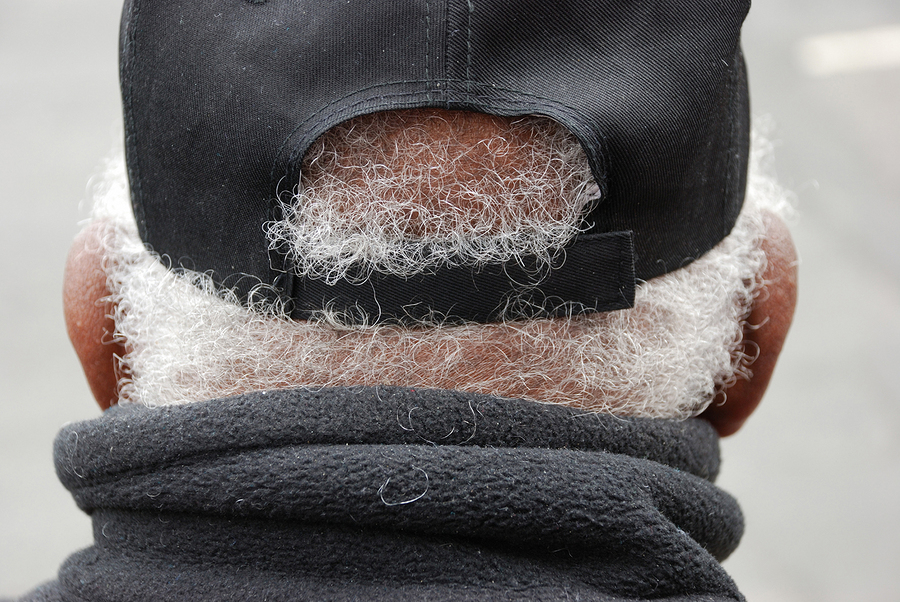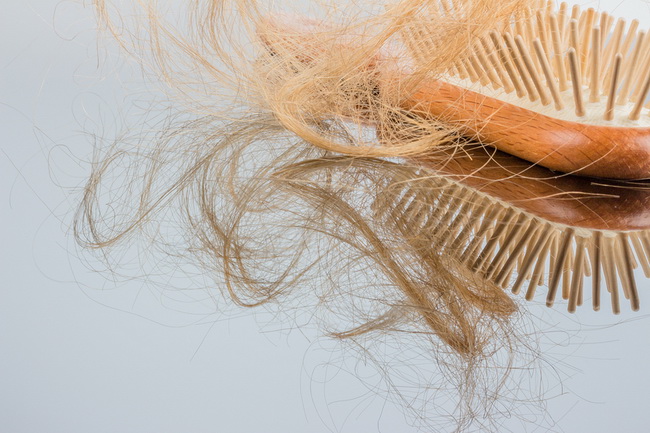- Make It Yourself Lavender Heart-Shaped Bath Bombs!
- 20 Things You Never Knew About “Down There”
- 12 Best Foods For Those Suffering From Arthritis Pain
- 12 Personal Hygiene Mistakes Almost Everyone Makes (Mom Never Told You About #4!)
- 15 Medicinal Plants And Herbs From The Cherokee People
- 12 Mind-Blowing Benefits Of Drinking Coconut Water During Pregnancy
- 12 Outstanding Winter Foods That Won’t Fatten You Up Like A Christmas Turkey
10 Things To Do To Stop Hair Loss (And How To Avoid It!)

Photo credit: bigstockphoto.com
Every day we lose about 100 strands of hair. This is a normal process that is considered part of the growth cycle of our hair. Anything more than that is considered excessive and could be a problem. Almost all of your hair is growing all of the time. Your hair growth averages around a half an inch every month. There is about 10 percent of your hair that remains dormant, but after a couple of months it does fall out to make room for new hair. The natural shedding of hair is much different than hair loss. When hair sheds it does grow back; when you are suffering from hair loss it does not grow back.
What can cause hair loss?
There are several reasons you could be experiencing hair loss. Here are a few:
- Alopecia is a condition that is responsible for hair loss.
- Extreme hairstyles that may incorporate the use of barrettes, rubber bands or rollers that constantly pull at the hair can cause hair loss.
- Hair processes such as bleaching, straightening, permanent curling and coloring can severely damage hair and cause hair loss to become a permanent condition.
- Hormones could be the cause as they change because of pregnancy, birth control pills, childbirth, hysterectomies and menopause.
- Aging can cause a normal level of hair loss.
- Poor nutrition has also been credited for hair loss.
- Chemotherapy has long been recognized for people losing their hair. As it begins to fall out many people shave their head to not have to endure sporadic loss.
Ways to treat hair loss
The Cleveland Clinic offers a number of treatments that can be temporary or slow hair loss with new hope on the horizon.
Continue to Page 2

Photo credit: bigstockphoto.com
1. Wigs or hair extensions. Either of these are perfect for those who are dealing with temporary hair loss. The wigs are easy to use, and prices can range from moderate to expensive.
2. Specific lotions and creams. Rogaine is one of the most well-known hair lotions that actually does work. It is easy to use topically, or you can even take it as a pill.
3. Surgery. There is a laser treatment that has been able to show some results by stimulating the hair follicles to encourage the new growth of hair.
4. Anti-inflammatory prescriptions. These medications are based on steroids and are able to treat the follicles that may have been damaged.
5. Scalp massage. As simple as that.
10 Things you can do to stop hair loss resulted from stress
1. Get enough sleep
Making sure you always get enough sleep will keep you from getting stressed, which is one of the ways you can lose your hair.
2. Stay on a healthy diet
The same thing is true for eating healthy foods — the better your diet, the less stressed you will feel and the less likely you will be to lose your hair.
3. Treat the inflammation of your body
Since alopecia comes from inflammation, make sure to deal with your inflammation by eating right, exercising, and following all of the things listed here that will help reduce your issues. Everything that you can do to treat your condition will help you deal with your hair loss in an easier way. Eat right, exercise, and rid yourself of any stressful situations, and you may be surprised to find your hair growing back.
4. Take needed dietary supplements
Check with a health food store to see if there are any supplements that you may need to complete any dietary issues you have. You might also find that there are supplements to encourage your hair to grow back.
5. Complete rehabilitation if you need it
Making sure you complete your rehabilitation will take the stress of that situation off so you can relax. Anything and everything that stresses you out could be the reason your hair is falling out and not growing back.
6. Have a positive attitude
Always keep a positive attitude – you never know what will work and what won’t work. When you have a positive attitude, you will attract more positive things.
7. Check the medications you are taking
Go over your list of medications that you take either with your physician or even your pharmacist. You may be taking a medication that could be contributing to your hair loss.
8. Make sure to rest your body during the day
While it is important to get a sleep at night, make sure to not overtax your body during the day. This will make it hard to unwind and relax, giving yourself a good background in which to deal with your hair loss.
9. Exercise regularly.
Regular exercise releases endorphins, which are the feel-good hormones that make you happy. When you are happy and feel centered, you won’t succumb to stress and cause your hair to fall out.
10. Talk to your doctor
It is good to speak with your doctor to go over all of the options you have in dealing with your hair loss situation. He may be able to suggest a surgical procedure or prescribe a medication for you that could actually work.
KEEP READING: Grey Hair: Any Hope To Avoid?
Facts you didn’t know about alopecia
- You can get it at any age.
- It doesn’t have any other symptoms except hair loss.
- It is not permanent.
- It is usually caused by stress.
- You can treat alopecia.
- It could stop and not ever come back again.
- Other factors could trigger it.
- It can be related to other conditions.
- It can affect other areas, rather than head.
- It’s an autoimmune disease that affects healthy areas as well.
References:

































